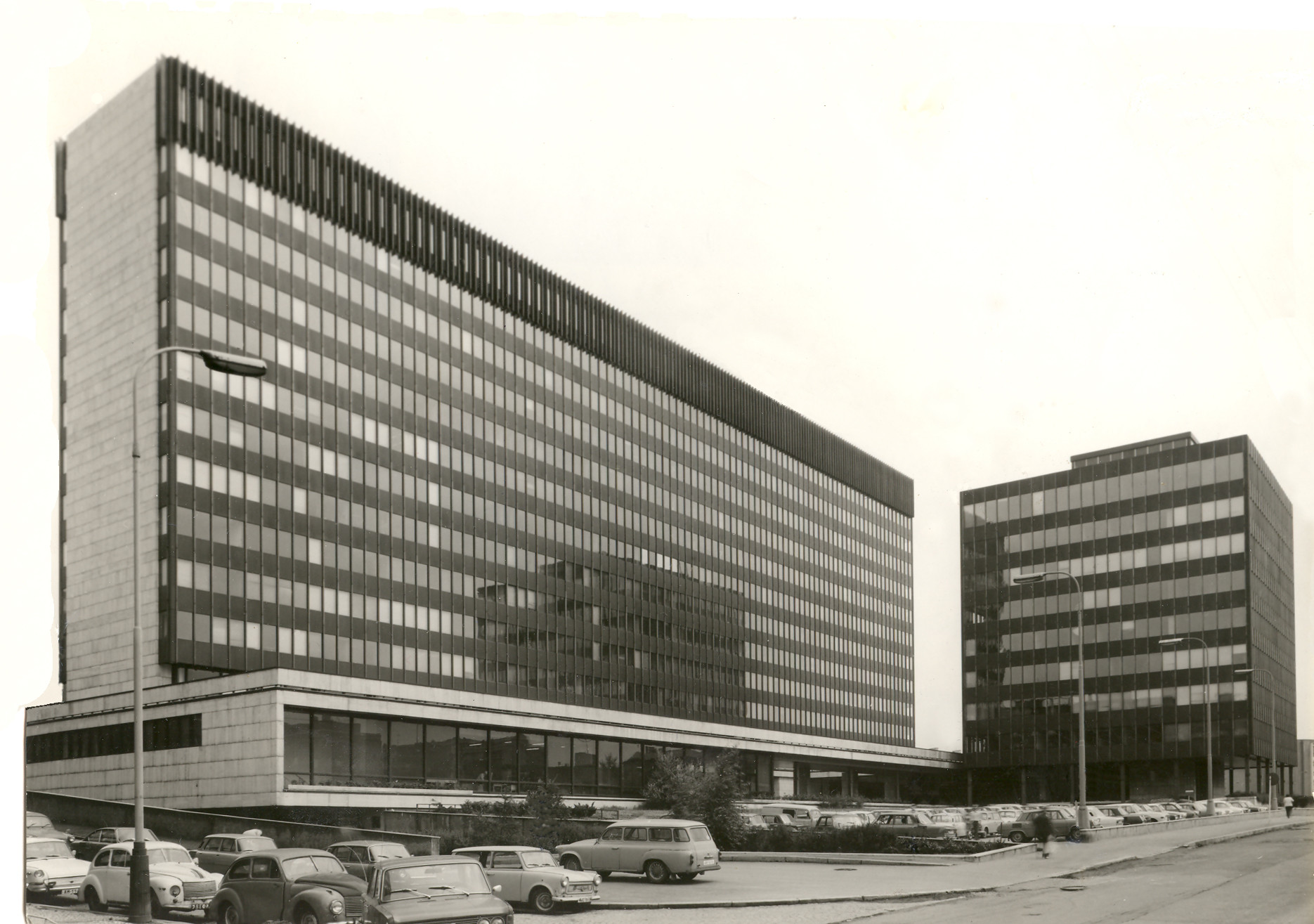Demolishing Complicated Histories: Chemapol, Architecture and Agribusiness II.
Conversation with Karel Machovec and Kateřina Pazderů, moderated by Tomáš Uhnák

The administration building of Chemapol, from the archive of Zdenka Marie Nováková
Length: 01 hours 30 minutes
Language accessibility: Czech
Free entrance
Discussion between agriculture expert Karel Machovec and Kateřina Pazderů, academic at the Czech University of Agriculture in Prague, moderated by artist and researcher Tomáš Uhnák, following the excursion and architectural guided tour with Helena Huber-Doudová and Zdenka Nováková of the Chemapol Investa building.
“Villages are surrounded by conventional fields, which act as destructive monsters from which there is no escape. The pesticides threaten everything and everyone around.” (Zuzana, ecological farmer, Nový Bydžov, 2024)
The second part of the event Demolishing Complicated Histories is hosted by Petrohradská Kolektiv, whose building is also set for demolition. The conversation between the vice-chairman of the Czech Social Democratic Party (SOCDEM) Karel Machovec and Kateřina Pazderů, beekeeper, greengrocer and academic at the Czech University of Agriculture in Prague, will focus on the rise of agribusiness in Czechia and its far-reaching consequences, especially in light of the unfolding climate crisis and the urgent need for more sustainable approaches to farming. The history of Chemapol as a Czechoslovak foreign trade enterprise is closely connected to this issue as it was an important producer of agrochemicals during socialism. After its post-transition collapse, Chemapol was privatized to become part of the business empire Agrofert, currently a leading producer of synthetic fertilizers in Europe.
When talking about rural change, agribusiness and the agroindustry are the definitely unwanted but omnipresent protagonists, representing the endeavor for greater and greater productivity in agriculture and also the concentration of power, land, and resources in the hands of a few corporate players. The biennale foregrounds small farmers’ struggles – their resistance and resilience – but in this event, we will tackle the “elephant in the room”: power players like Agrofert, who also shape and define rural realities.
Karel Machovec studied chemistry and worked as the head of an agrochemical laboratory. Since 1991 he has been a member of the Czech Social Democratic Party (SOCDEM) and has acted as a regional representative and an advisor to the prime minister. He is currently the vice chairman of SOCDEM and is involved in environmental, agricultural, and social policy issues.
Kateřina Pazderů teaches at the Czech University of Life Sciences Prague in the field of plant cultivation, and she engages in beekeeping and vegetable cultivation on her family farm. Her research interests include seed production. She is a member of the Green Party and has served on the Environment and Agriculture Committee of the Central Bohemian Region. She is involved in the Czech University Trade Union.